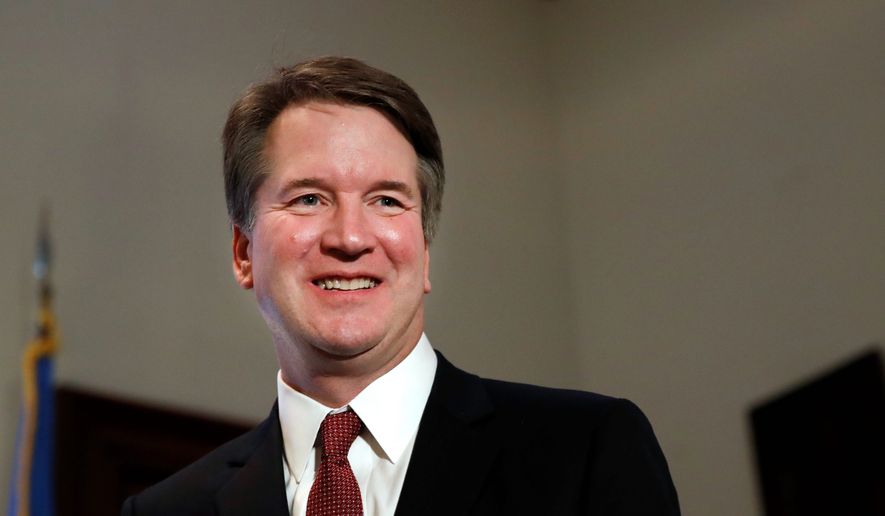When Judge Brett M. Kavanaugh is asked this week about the Federalist Society, he’ll be ready.
Long the bugaboo for legal-minded Democrats, the Federalist Society — as well as Judge Kavanaugh’s past ties to it, and its role in helping President Trump select him as the nominee for the vacant Supreme Court seat — will figure prominently in his Senate confirmation hearing, which begins Tuesday.
It’s something Judge Kavanaugh faced as far back as 2001, when as a rising star lawyer in the Bush White House counsel’s office, he urged colleagues to start coming up with defenses for the storied legal association. He complained that reporters “lack balance” in their treatment of society members, maligning them as conservative hacks rather than the Constitution-minded legal scholars they saw themselves to be.
“It seems clear that press (and this a large segment of the public) do not perceive the Fed Soc as totally innocuous. We probably cannot ignore that that is the political reality,” Judge Kavanaugh lamented in an email at the time.
Not much has changed.
Senate Minority Leader Charles E. Schumer, New York Democrat, says the Federalist Society is angling for a repeal of the Supreme Court’s 1973 Roe v. Wade decision, which established a right to abortion.
Sen. Sheldon Whitehouse, Rhode Island Democrat, says the group is nefariously funded and up to no good. He has asked Judiciary Committee Chairman Chuck Grassley, Iowa Republican, to make available all documents between Judge Kavanaugh and society President Leonard Leo, who has served as an adviser to the president on court nominations.
“I think the role of the big-money interests that fund the Federalist Society in the selection of our judges is something that needs sunlight on it, and I am very hopeful to be able to find a way so the American people can find out what goes on behind the scenes,” Mr. Whitehouse told The Washington Times.
Justice Neil M. Gorsuch faced the same criticism during his confirmation hearing last year — though it didn’t stop him from winning his seat.
Similar barbs are fired at lower-court nominees who have ties to the Federal Society, either having been past members or even addressed society events.
“For really as long as I’ve been involved in judicial nominations, which goes back to early in the previous decade, Democrats have tried to make an issue out of the Federalist Society,” said Curt Levey, president of the Committee for Justice, a think tank focusing on constitutional issues.
Neither the Federalist Society nor Mr. Leo responded to a request for comment.
The group, which has more than 70,000 members, doesn’t take policy positions and is committed to the separation of governmental powers and the balance of powers between the states and the federal government.
Judge Kavanaugh was a member but said in his 2001 email to colleagues, including then-chief counsel Alberto R. Gonzales, that he resigned from the society before joining the White House “precisely because I did not want anyone to be able to say that I had an ongoing relationship with any group that has a strong interest in the work of this office.”
What drew his particular ire that day was an op-ed in The New York Times by Anthony Lewis, who had been the paper’s legal reporter and who was complaining about the influence of the Bush lawyers on judicial nominees.
Judge Kavanaugh went on to say that the criticism from the press was particularly jarring since being a member of the liberal-leaning American Bar Association never drew similar criticism.
“Why don’t they write that? Why don’t we aggressively point that out to the reporters?” he wrote.
Despite the venom Senate Democrats hold against the group, the society’s reputation among legal scholars is decidedly better.
All of the current justices, with the exception of Justice Gorsuch, have participated in Federalist Society events, dating as far back as 2001.
And when Justice Elena Kagan was dean of Harvard Law School, she said the Federalist Society’s student members were hard-working, intelligent and committed to improving the school community.
“I love the Federalist Society,” she said.
• Alex Swoyer can be reached at aswoyer@washingtontimes.com.




Please read our comment policy before commenting.